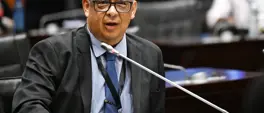How to stay safe on WhatsApp as impersonation scams surge
Tasleem Gierdien
15 September 2025 | 7:09Scammers are now pretending to be your close WhatsApp contacts to ask for money urgently. Don't fall for it.

WhatsApp / Pixabay: HeikoAL
CapeTalk's Lester Kiewit speaks to Lucas Molefe, a cybersecurity expert.
Listen below:
A growing trend in online fraud involves criminals impersonating people you know, such as friends, family, or colleagues, on WhatsApp to scam you out of money.
How these scams work
Fraudsters often pretend to be someone you trust by:
-
Claiming they have a new phone number.
-
Spoofing or cloning a number to appear legitimate.
-
Using stolen profile pictures to create convincing duplicate accounts.
-
Creating urgent stories to pressure you into sending money or sharing sensitive information.
They might ask you to send a One-Time PIN (OTP) or verify personal details under the pretenceof needing help, when in reality, they’re trying to access your bank accounts or WhatsApp account.
Since WhatsApp is linked to other Meta platforms like Facebook and Instagram, scammers may use your publicly shared personal information to make their impersonation more convincing.
Common red flags
-
You receive an unexpected message from someone claiming to have a new number.
-
They urgently ask for money or sensitive information.
-
They refuse to take voice or video calls, insisting on communicating only via text.
-
You’re asked to share an OTP or click on suspicious links.
How to protect yourself
-
Never share OTPs or personal details via WhatsApp, even with people you trust.
-
Verify the person's identity using a different method, like a direct call or face-to-face conversation.
-
If your WhatsApp account is compromised through a SIM swap, contact your mobile provider and bank immediately to secure your number and accounts.
"When that number is taken, it's important to rush to the network service provider and bank to change those numbers. This is real, everyone uses WhatsApp, and the best thing is to be alert and protect yourself by also using two-factor authentication."
- Lucas Molefe, cybersecurity expert
Scroll up to the audio player to hear more.
Get the whole picture 💡
Take a look at the topic timeline for all related articles.
















